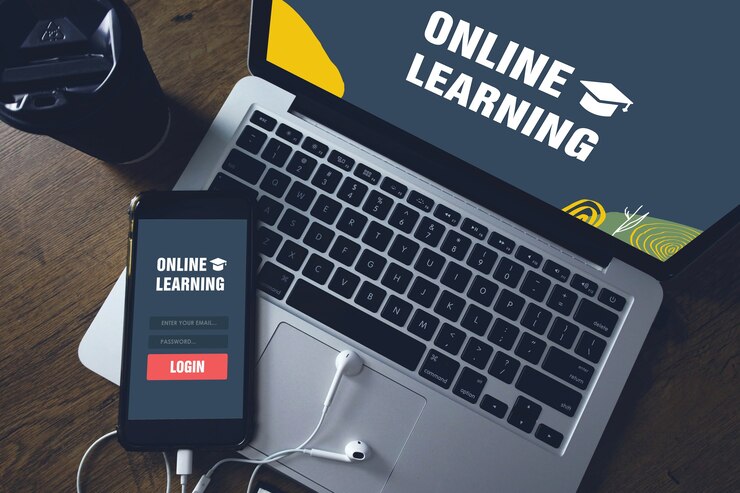
Online Course
What Makes an Online Course Effective? A Complete Guide
With the rise of technology, online courses have become a popular way to learn new skills or advance education. They offer flexibility and convenience, making it easier for people to study anytime and anywhere. However, with so many online courses available, it can be tricky to figure out which one is right for you. So, what makes an online course stand out? Let’s explore the essential features that make online courses both valuable and effective.
-
Clear Learning Objectives
A great online course always starts with clear learning objectives. Learning objectives are simple statements that explain what students will learn by the end of the course. These objectives serve as a roadmap for both teachers and students. They help guide the course content and give students a clear idea of what they are working towards. Without these clear objectives, students might feel lost and not know if they are making progress in their learning journey.
-
A Well-Structured Curriculum
For a free online course to be effective, it needs a well-structured curriculum. The curriculum should be organized in a way that makes sense. It should start with the basics and gradually move to more advanced topics. This ensures that students understand the fundamentals before diving into complex ideas. The course content should also be balanced. It should mix theory with practical tasks that help students apply what they’ve learned. This balance keeps students engaged and makes it easier for them to remember the information.
-
Use of Multimedia Elements
One of the great advantages of online learning is the ability to use multimedia elements. These elements can include videos, audio, pictures, and interactive activities. Since online courses don’t have face-to-face interaction like traditional classes, using multimedia helps keep students engaged. It also caters to different learning styles. For example, visual learners might enjoy watching videos, while hands-on learners could benefit from interactive quizzes or games. These multimedia tools make learning more fun and interesting.
-
Engaging Activities and Assignments
Effective online courses include engaging activities and assignments. These activities should help students practice what they have learned and allow them to apply new skills. Examples of engaging activities include group projects, case studies, or simulations. These assignments also encourage critical thinking and problem-solving. By participating in these tasks, students get a chance to deepen their understanding of the topic and work with others, which enhances their learning experience.
-
Regular Assessments and Feedback
Assessments are an essential part of any online course. Regular quizzes and exams allow both students and instructors to track progress. These assessments should challenge students, but not overwhelm them. A good assessment is aligned with the course’s learning objectives, making sure students are tested on what they are supposed to learn. Moreover, instructors should provide timely and constructive feedback on assignments and tests. This feedback helps students understand their mistakes and improve their learning.
-
Access to Resources and Support
For an online course to be successful, students need to have access to resources and support. Resources could include textbooks, research articles, or additional reading materials that help students understand the topics better. Additionally, it is important to have a support system in place. This support could be in the form of an instructor or a help desk that answers questions and provides assistance when needed. Having access to support is especially helpful for students who may struggle with the material or face technical issues.
-
A User-Friendly Learning Platform
Another important feature of a good online course is the learning platform. The platform should be easy to navigate and user-friendly. If the platform is confusing or difficult to use, it can create unnecessary stress for students and make it harder for them to focus on learning. The platform should also be accessible on various devices, such as laptops, tablets, and smartphones so that students can learn at their own convenience. A smooth and simple interface ensures that students can focus on the lessons rather than dealing with technical problems.
-
Flexibility and Convenience
One of the main reasons why people choose online courses is the flexibility they offer. Students can study from the comfort of their own homes and choose the times that best fit their schedules. This flexibility makes online learning an ideal option for people who are working full-time, have family commitments, or live in remote areas. Additionally, online courses can be accessed from anywhere in the world, making education available to people who might not have easy access to traditional schools.
Conclusion:
In conclusion, the best online courses share some key features that make them effective and engaging. Clear learning objectives help guide students’ progress, while a well-structured curriculum ensures they build on their knowledge step by step. The use of multimedia elements and interactive activities keeps students engaged and helps them learn in different ways. Regular assessments and timely feedback help track progress and improve understanding. Access to resources and a user-friendly platform are crucial for smooth learning, and the flexibility of online courses makes them accessible to people everywhere.
As more and more students turn to online learning, it is important for course creators to keep these features in mind. By focusing on these key aspects, online courses can provide a valuable and successful learning experience for students of all ages.






